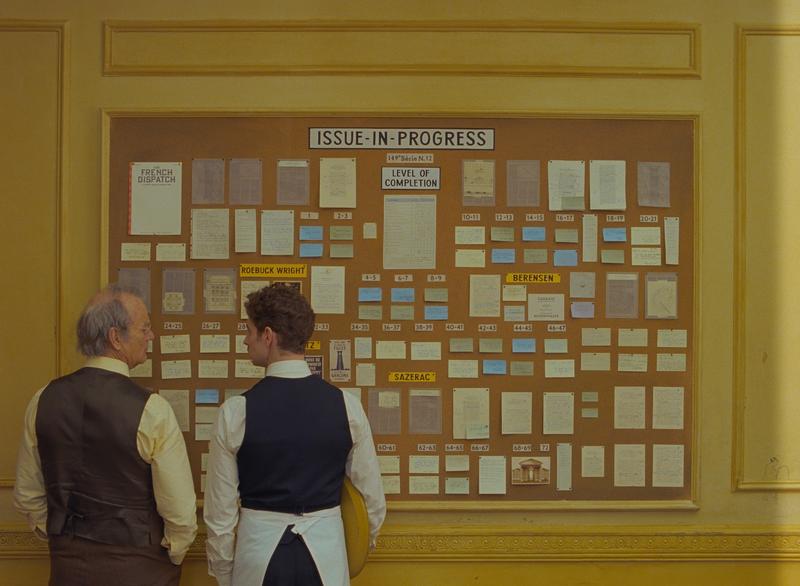Wes Anderson’s underwhelming technicolor showboat


Please take those two stars with a grain of salt. They're there because two is precisely halfway between four — which Wes Anderson fans are going to award his latest, The French Dispatch — and zero, which is the rating everyone else is going to bestow on the film.
Anderson is, among working filmmakers with a distinct voice, the most singular — and that voice has only amplified with age. When he emerged with the ultimate dysfunctional family dramedy, The Royal Tenenbaums, in 2001, his absurdist melancholy, meticulous composition, and comic whimsy came across as a breath of fresh air. Anderson seemed to peak in 2014, when The Grand Budapest Hotel corralled all those elements in perfect balance in one film. Unsurprisingly, it was his biggest commercial success. However, 20 years after Tenenbaums, Anderson is in danger of becoming a parody of himself.
In The French Dispatch every predilection in Anderson's arsenal is magnified to extremes of tweeness and fussiness, the "hits" of all his other films rolled into one frenzy of dollhouse picaresque and hyper-verbosity. The director's devoted stable of actors is along for the ride, including his alter ego Bill Murray, who's been in nine of Anderson's 10 features, Owen Wilson (seven), and Jason Schwartzman (six), as well as relative newcomers to the church of Wes: Tilda Swinton, Saoirse Ronan and Edward Norton. That's the tip of the iceberg on a stacked cast.
The story, or what counts as one, revolves around the Kansas-based editorial staff of the eponymous French Dispatch putting together the magazine's final issue after its founder and editor-in-chief, Arthur Howitzer Jr (Murray), dies suddenly of a heart attack. Three segments are told via (mostly) black-and-white flashback as Howitzer goes over the copy with his writers. Most of the stories are from the small French town of Ennui-sur-Blasé — it doesn't get more Andersonian than that name. The first is about an incarcerated artist (Benicio del Toro) that an art dealer (Adrien Brody) makes a star of; the second follows the love life of a student revolutionary (Timothée Chalamet) and the writer (Frances McDormand) chronicling his activities; and the final segment details the kidnapping of a police commissioner's son, and rescue by the police officer and chef Lt Nescaffier (Stephen Park), as recounted by writer Roebuck Wright (Jeffrey Wright).
Dispatch is essentially a love letter to letters, a paean to long-format magazines like The New Yorker (which gave the film a rave review), many of which have gone the way of the dinosaur. But it's also an exercise in Anderson's mechanics. There is filmmaking craft here, and it's been production designed to within an inch of its life by Adam Stockhausen, but there's also an egregious helping of self-indulgence. Without moderation, Anderson's preciousness curdles into obnoxious showboating; his stylized verbal flourishes, into intellectual arrogance. And therein lies the rub. For every one of the director's detractors there's an equally avid booster who will see merit where some see fault. If The Grand Budapest Hotel was a bit understated for your tastes, The French Dispatch will be an artistic feast. Everyone else: Proceed with caution.
- Radiopharmaceutical development alliance launched in Shanghai
- Kelsang Pedron: A Tibetan female pilot in the Chinese PLA Air Force
- China expands rural land contract extension pilot program
- Fiber chip thinner than a hair
- Ministry to optimize the structure and scale of university enrollment
- Why do China's cultural and creative products go viral?





































